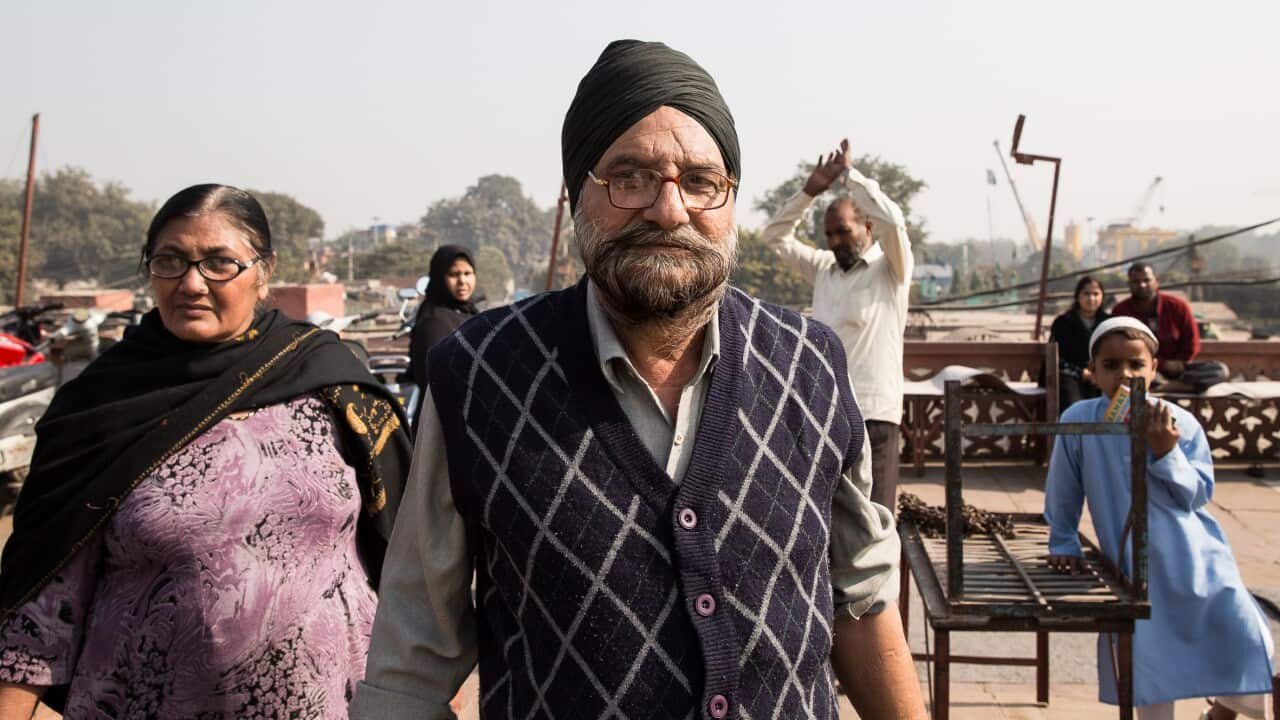In the heart of Old Delhi, an elderly man pointed his walking stick to the sky and proclaimed “Look at me, I am a miracle.”
The man, from Udaipur in western India, travelled more than 11 hours to have his feet sliced open with a razor blade to let his “bad blood bleed out”.
“The first day when I got here, I could not walk,” he said.
“I had to be carried by two men. Now look at me only five days later.”
The ancient practice of bloodletting – the withdrawal of small quantities of blood from a patient to cure illness and disease – is more than 2,000 years old.
It is claimed to treat everything from arthritis and cancer, to dermatitis and inflammation.
Patients have been coming to see 79-year-old Mohammed Gyas since 1980. He has never missed a day of work.
While Mr Gyas does not practice any more because he has Parkinson’s disease, he is still the reason why people from around the world flock to the gardens of Jama Masjid in the Old City.
He was trained as a phlebotomist by his grandfather and passed on his skills to his son who took over in 2008.
Mr Gyas watched on as his son pricked another man’s hands and feet with a blade.
“In medical science, there is no relief for many illnesses,” he said.
“Here, patients make a charity donation and they are relieved from their illness. I am the only person on Indian soil who has done this.”
Up to 250 patients visit Mr Gyas everyday. A typical treatment is between 15 and 30 days.
“The darker the blood, the longer you have to bleed out,” Mr Gyas explained.
“Black blood blocks circulation.”
Dozens of Indians lined up to have a tourniquet tied around their left leg and right arm to tighten the nerves before his son made several small incisions in people’s feet or hands, depending on their illness.
Once that was done, patients lined up next to one another on a ledge and let the blood drip out and wash on to the street.
One of several assistants poured water over people’s wounds to flush out the blood.
The wounds are then dried and treated with cinnamon before patients walk up and down a mat sprayed with disinfectant.
A doctor was on hand to administer tetanus injections to newcomers for $1, while everyone who is cut was given a mild course of antibiotics to help prevent infection.
When asked about the risk of infection, the doctor, who has been working with Mr Gyas for more than 20 years, said:
“Well, because blood washes out of the body on to the ground, not into someone else, the risk of infection is minimal,” he said.
“Every razor blade we use is new – we cut people and then throw the blade out.”
Meanwhile, a man letting cuts from both his feet and hands drip on to the ground, said he travelled from Dubai for the treatment.
“I am on my fifth day of treatment and I will do it for a total of 22 days,” Jose Cherian said.
“I have dermatitis so I itch a lot. I have tried everything in the past. Already I’m feeling better.”
While the medical profession might doubt the effectiveness of the ancient healing practice, the thousands of thank you letters Mr Gyas has received over the years is testament that it must do the trick for some.

